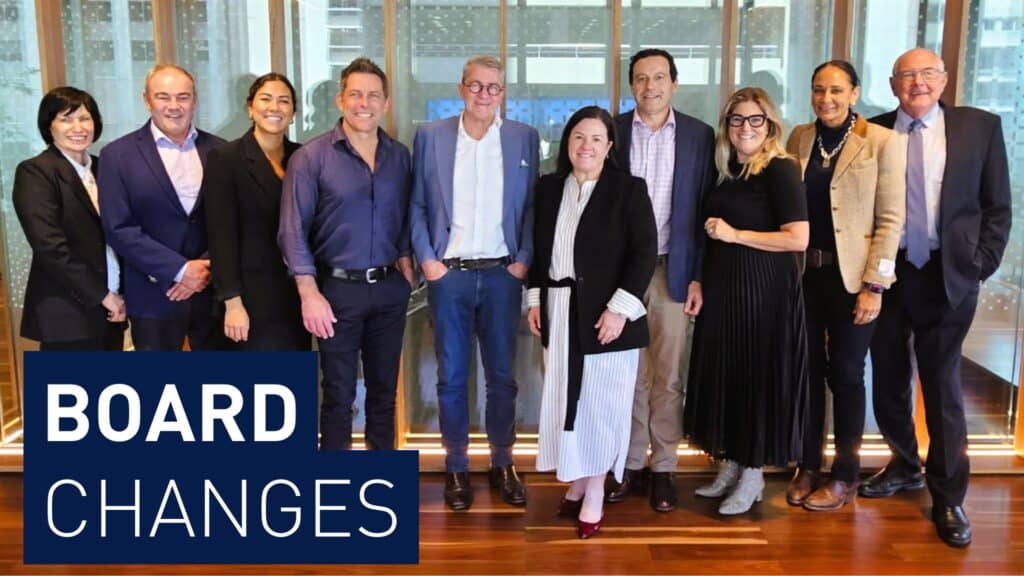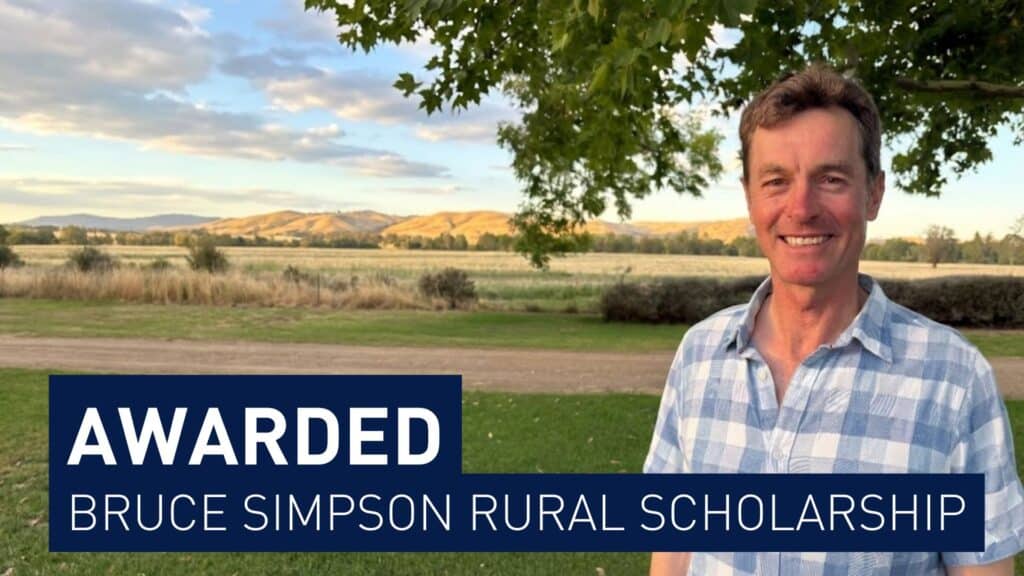Fossil Bluff beach is at one end of Jacqueline de Jonge’s Wynyard street, and at the other the Inglis River flows, wandering from the Campbell Ranges before ending its journey in the Bass Strait.
It is no wonder she describes her home as “a most beautiful place”, one that is a far cry from Sydney, where she grew up and attended university.
Jacqueline’s appreciation of her home and community led to her participation in the Leading Australian Resilient Communities (LARC) program, as she sought to develop leadership outside of the classroom in which she teaches.
During the program she worked with a group to deliver the Community Learners project, which focuses on redefining education and working to ensure effective delivery of different learning experiences.
The project is particularly close to her heart, as someone already involved in education and who can see gaps in its delivery in the area she now calls home.
Jacqueline moved to Tasmania after she met her partner Kurt, whose parents farm near Stanley in the State’s North-West.
“I know that is said that you can’t call yourself a Tasmanian until you have lived here for generations, and despite the fact that I have given birth to two Tasmanians, I sometimes let myself believe it. However, after 12 years, this is my home and I am very passionate about it,” Jacqueline said.
She said she does miss some aspects of Sydney city life, but they are nothing compared with the natural beauty and work-life balance provided by virtue of her surroundings.
Beautiful though the region is, there are underlying problems to be addressed.
“We have the same challenges as other rural and regional communities in terms of health care, access to mental health services and quality education,” Jacqueline said.
“We have had big businesses and major employers shut down, market volatility and agricultural prices threaten the lives and livelihoods of farmers, and natural emergencies that have tested resilience,” she said.
Economic disparity within the community, including inequitable access, participation and aspiration, was the biggest ongoing challenge.
“Issues, including but not limited to, affordable housing, access to healthcare, quality education, and so on, are amplified in a region like the North-West because it affects people we know,” Jacqueline said.
“The family who is accessing emergency food relief will likely have kids that I teach or that my kids know or who do after school activities that we are part of. I think that in regional communities, it is much harder to hide such problems away,” she said.
Because the area has been relatively free of major natural disasters that reveal the need for resilience in a graphic and obvious way, Jacqueline says she has struggled to understand the concept within her own community.
“We don’t have a bushfire or natural disaster story to tell, but there is the ebb and flow that does have an impact on place, the daily grind that wears; what it means to exist. Individual wellbeing is crucial to community wellbeing,” Jacqueline said.
LARC helped Jacqueline define resilience more accurately. She said a truly resilient community would cope with both the daily grind, and large impact traumatic events, in a better way than one which is not.
The program offered Jacqueline the opportunity to increase her understanding of problems in her community, while training her to be a better leader. She also felt it would connect her with like-minded people, while equipping her with practical skills.
She also hoped it would provide the North-West with the chance to celebrate its local leaders, and through them engage in big picture and creative thinking.
Jacqueline said the Community Learners project partnered young learners (through a school) with community learners (through Live Well Tasmania) to co-design a product or service that will benefit the community.
“Everyone involved in the project is a learner: learning happens through experience, and learning takes place in the community,” she said.
The project was inspired by the theoretical learnings of system change and aimed to challenge the definition and delivery of learning. It would foster fresh thinking around education.
“Lifelong learning and experiences like working alongside Men in Sheds may be more effective for some learners,” Jacqueline said.
She said that as it defined terms like experiential and service learning, the group was working towards effective education practices. This was important in her community where educational attainment was still low, evidenced by NAPLAN and poor retention rates in Year 12.
“There is a disconnect between what learning looks like and what it feels like, with a failure to see it as an intergenerational process or appreciate the value of higher learning,” she said.
Jacqueline said that the area still lost people to the mainland, to access either education or work, and that more could be done to attract and retain young families.
“Rather than fight this “brain drain”, maybe we should look at leaning in and preparing young people for the learning experience that may take them away from home, and then work hard to ensure they have what they need to attract them back, ensuring we maintain the flow of creativity and innovation that will return with them.”
This would serve to bolster community resilience as families became rooted in the region, and diverse educational experiences and knowledge would improve its capacity to deal with future shocks.
Jacqueline said that a challenge post LARC was continuation of project delivery.
“We have this incredible fodder for highly aspirational thinking: we have been given the theory and some opportunity to apply it,” she said. “But the reality is that delivery is complicated by life, work and other distractions.”
Jacqueline said that she felt that system change would not be marked by an abrupt defining moment, but rather that it was a more gentle, non-threatening movement that “grows from within”.
But she said LARC graduates were keen to put their learnings into practice, and “not just a tinkle in a small patch of the garden.” They want to tackle “the whole yard.”
Following the program, Jacqueline is committed to bridging the gap between what she does in different aspects of her life. Though she was already working to ensure that young people made the most of the education offered to them, she was yet to work out exactly how to achieve this aim.
“I am keen to explore what opportunities and possibilities exist for me to combine my professional experience (as a teacher) and my experience as a community leader (volunteer),” Jacqueline said.
She would also be working towards making existing complex and interrelated systems more flexible and creative, change needed to achieve the goal of inspiring education.
In terms of her LARC experience, she said that it was always a privilege to be able to work with different people, outside of the world of education.
“Schools can be such insular places in terms of having particular ways of thinking and working. I find it takes a great deal of care and consideration to ensure my interactions do not assume other people work the way I do or understand the world the way I do,” Jacqueline said.
“I like being challenged in this way. It has also been a process of validating some of the tools I use and rely on as a leader, especially building strong and positive relationships,” she said.
“I want to wrap around the different people and support models which affirm that interconnectedness of issues, belonging and connection.”
Jacqueline said that she would use her LARC boosted leadership skills to ensure that, from day to day, young people had a positive experience of school, and families were excited to live on the North-West Coast.





